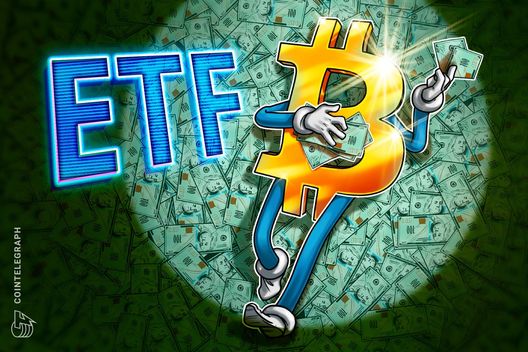Crypto News
Kraken’s xStocks tops $25B in volume with more than 80K onchain holders

Blockchain-based versions of US stocks are drawing growing investor activity, with onchain wallets and cross-venue trading expanding rapidly.
Published Date: 2026-02-19 21:49:46Creator: Cointelegraph by Sam Bourgi
Read More
Bitcoin Lightning Network exceeds $1B in monthly volume: Report

Analysis by Bitcoin services company River forecasts a transaction surge as individuals and businesses experiment with AI agentic payments.
Published Date: 2026-02-19 21:32:02Creator: Cointelegraph by Vince Quill
Read More
Bitcoin’s monthly losses break records, but history says a turnaround is brewing

Bitcoin is on course to lock in another negative month, but one analyst says major differences in the current market structure could be a sign of a pending trend reversal.
Published Date: 2026-02-19 21:15:00Creator: Cointelegraph by Nancy Lubale
Read More
SEC leaders seek to clarify how tokenized securities interact with existing regulation

Paul Atkins and Hester Peirce spoke at ETHDenver on Wednesday on the future of regulation at the SEC and its response to crypto market volatility.
Published Date: 2026-02-19 21:09:52Creator: Cointelegraph by Turner Wright
Read More
Community banks see net deposit outflows to Coinbase: Study

A transaction-level analysis of 92 community banks found $78.3 million in net deposits moved to Coinbase over 13 months, with money market accounts losing most outflows.
Published Date: 2026-02-19 21:06:23Creator: Cointelegraph by Nate Kostar
Read More
Tightening Bitcoin Bollinger Bands forecast explosive price move, but which way?

The Bollinger Bands indicator has narrowed to its tightest level on record, a rare technical setup that analysts say is a sign of a pending directional move.
Published Date: 2026-02-19 20:15:54Creator: Cointelegraph by Biraajmaan Tamuly
Read More
ProShares seeks stablecoin reserves with GENIUS Act-compliant Treasury ETF

The ETF invests exclusively in short-term US Treasurys and is structured for potential use by stablecoin issuers under US reserve requirements.
Published Date: 2026-02-19 20:11:23Creator: Cointelegraph by Nate Kostar
Read More
Ripple CEO confirms White House meeting between crypto, banking reps

Trump administration officials held a similar event last week to discuss stablecoin yield within a market structure bill under consideration in Congress.
Published Date: 2026-02-19 19:06:06Creator: Cointelegraph by Turner Wright
Read More
Bitcoin ETFs still sit on $53B in net inflows despite recent outflows: Bloomberg

Heavy outflows haven’t erased the success of spot Bitcoin ETFs, which still hold $53 billion in cumulative inflows, according to Bloomberg analyst Eric Balchunas.
Published Date: 2026-02-19 18:58:22Creator: Cointelegraph by Sam Bourgi
Read More
‘Resilient’ Bitcoin holders defend BTC, but bear floor sits 20% lower: Glassnode

Bitcoin trades in a tight demand zone that formed in 2024, but previous bear market data suggests the channel will break and lead to new lows.
Published Date: 2026-02-19 18:12:07Creator: Cointelegraph by Biraajmaan Tamuly
Read More